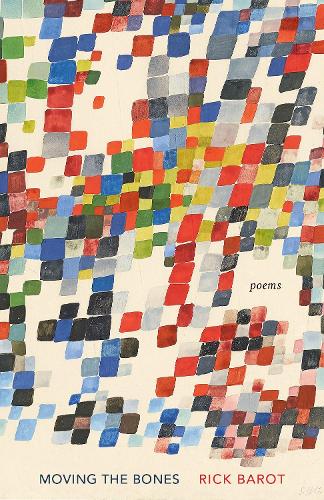
Moving the Bones
(Paperback)
Publishing Details
Moving the Bones
By (Author) Rick Barot
Milkweed Editions
Milkweed Editions
22nd January 2025
United States
Classifications
Physical Properties
Paperback
256
Width 139mm, Height 215mm
Description
A vulnerable and honest collection of poems exploring lineage, love, and the pandemic, from one of the most acclaimed poets of his generation.
You are told to believe in one paradise / and then there is the paradise you come to know, begins Rick Barot. What follows is an account of the rich and thorny valley between those poles. Moving the Bonesand confronting the inevitabilities that lie ahead.
For Barot, this presence of mind is an art of being lost in thought. My mind has a slow metabolism, it is slow / to understand what anything means, he confides, but understands that if you look at something / long enough, it will have something / to say to you. Appreciating a Rembrandt, standing in a Goodwill, watching a boy with a flower behind his earwe encounter ephemeral murmurs of meaning everywhere, but only by slowing down, listening. If we take time to notice the enduring insights of daily moments, if we praise cherry blossoms, lungs, and crying, we might find it easier to bear the loss of a loved one, the sting of solitude, the bodys decline.
By laying bare his own experiences, Barot brings us close enough to witness the lyrical work of consciousness. Patient and attentive, this collection illuminates the everyday and invites us to find pleasure in doing the same, at every stage of life.
Reviews
Praise for The Galleons
In his impressive fourth collection, Lambda Literary Awardwinning poet Barot (Chord) critiques imperialism and capitalist excess through the recurring symbol of the galleons that sailed the Spanish conquistadors to the New World. Galleons poems feature lists of plundered objects, names of ships, and even the poets Filipina mothers life story. Each is a journey through Barots labyrinthine thought process; rarely does he go where youd expect [. . .] Barot skillfully synthesizes historical themes with a personal vision that establishes a meaningful relationship to the reader.Publishers Weekly (starred)
The Galleons reckons with origins and histories, both personal and public, on a global scale [...] [it] sweeps the reader along in an unfolding narrative tide.The Rumpus
This ambitious new work by multi-award-winning poet Barot (Chord) presents his familys immigration from the Philippines to America as part of a larger investigation: What is history, and how does it comprise our stories [. . .] The result is a quietly assured unwinding of a key aspect of human history.Library Journal, Top Spring Poetry
The Galleons, rich with somber beauty and insight, concludes that the spinning threads in the vortex of history are after all made by ordinary bodies: they engender complex lineages, loves, wars, sorrows, triumphs, and losses.RHINO Poetry
In thinking about elegiac layers, this book reverberates with the spectral thread of personal and collective history. Opening up the marrow of geography, The Galleons is Barots most vulnerable and lyrically stunning book to date.Jane Wong, Poetry Northwest
Author Bio
Rick Barotis the author of Moving the Bones. He was born in the Philippines, grew up in the San Francisco Bay Area, and attended Wesleyan University and The Writers Workshop at the University of Iowa. His previous books are The Darker Fall, which received the Kathryn A. Morton Prize; Want, which was a finalist for the Lambda Literary Award and won the 2009 Grub Street Book Prize; andChord,which was a finalist for theLA TimesBook Prize and received the 2016 UNT Rilke Prize, the PEN Open Book Award, and the Publishing Triangles Thom Gunn Award. His fourth book of poems The Galleons was published by Milkweed Editions in 2020. It was listed on the top ten poetry books for 2020 by the New York Public Library, was a finalist for the Pacific Northwest Book Awards, and was on the longlist for the National Book Award. Barot has received fellowships from the Guggenheim Foundation, the National Endowment for the Arts, the Artist Trust of Washington, the Civitella Ranieri Foundation, and Stanford University, where he was a Wallace E. Stegner Fellow and a Jones Lecturer in Poetry. In 2020, Barot received the Shelley Memorial Award from the Poetry Society of America. He teaches at Pacific Lutheran University and lives in Tacoma, Washington.
